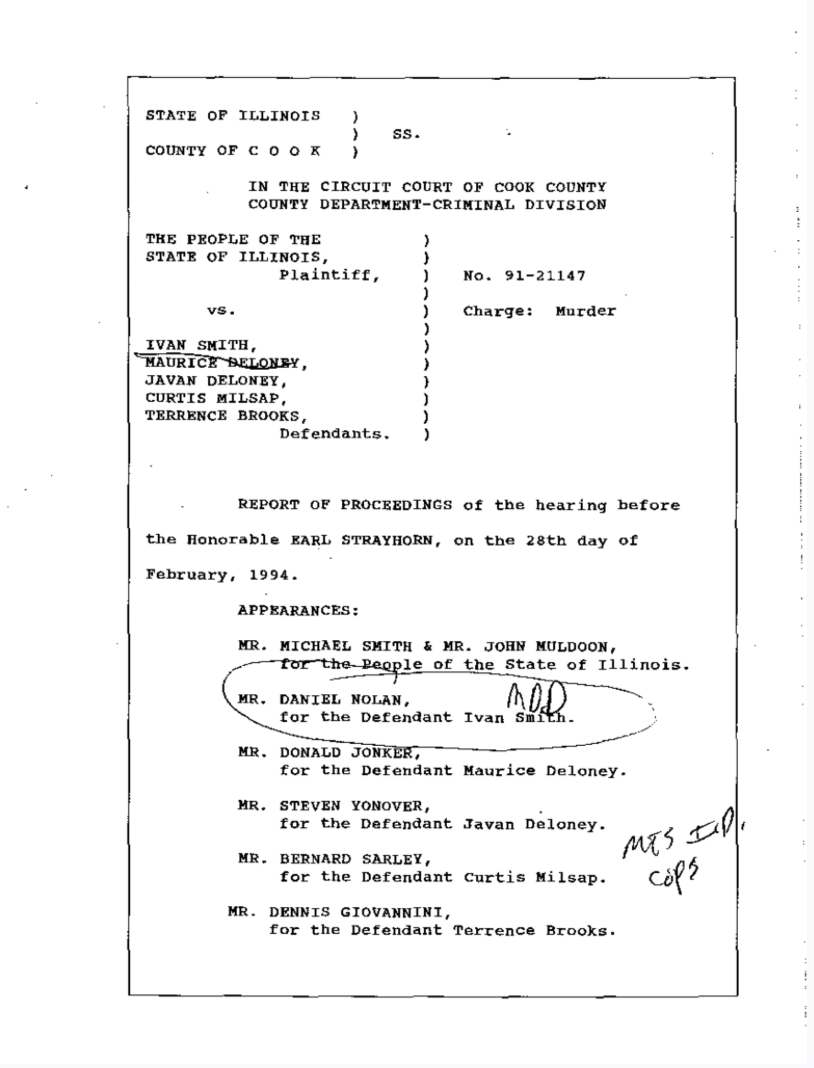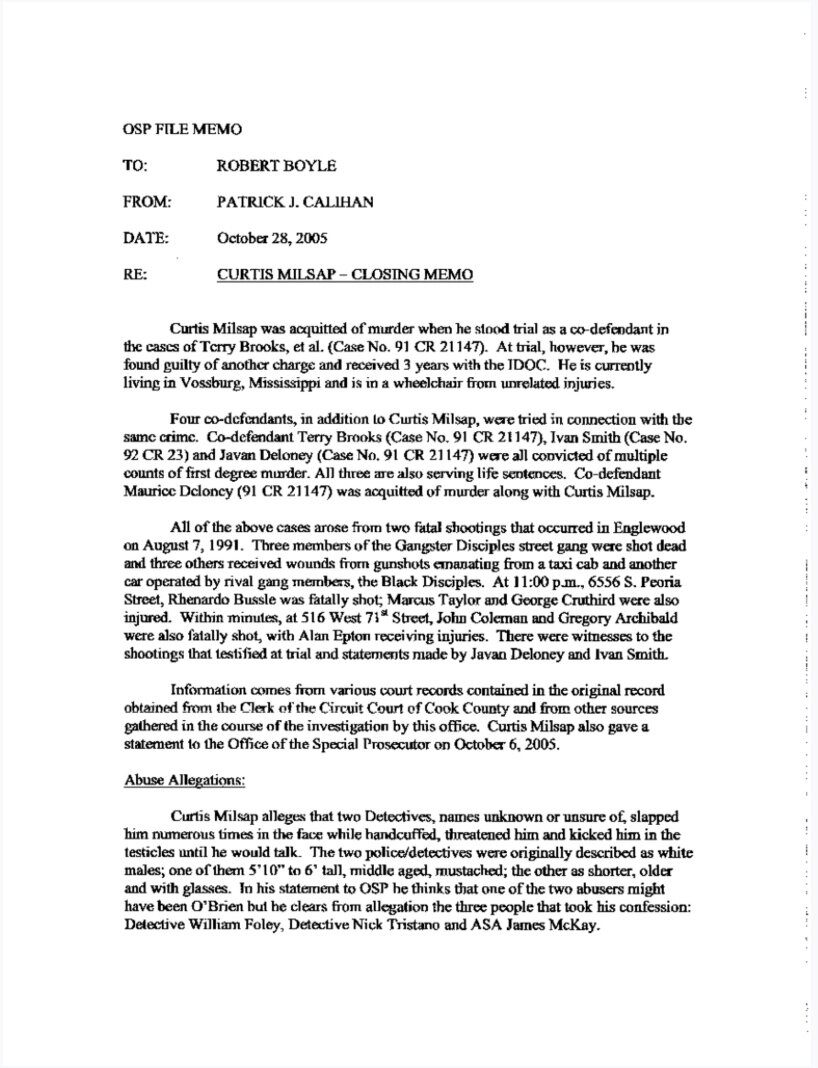Curtis Milsap, who loves to fish and opened up a food joint after leaving Chicago for his native Mississippi, spent years seeking to prove that he was beaten and abused by police for suspected involvement in two related 1991 shootings on Chicago’s South Side.
Milsap consistently told police and medical staff about the torture he had suffered at the hands of unnamed police officers linked to the command of police Cmdr. Jon Burge.
The shootings left three wounded and three dead. Milsap was acquitted at trial but spent 2 ½ years in jail awaiting his court date, according to the Chicago Sun-Times, for an unrelated charge. He later received $100,000 from Chicago’s reparations fund for victims of torture.
Two drive-by shootings
On August 7, 1991, two shootings took place on Chicago’s South Side involving members of the feuding Gangster Disciples and Black Disciples, a witness later told police.
The first drive-by took place at 66th Street and Peoria around 11 p.m. and the second occurred not long after in the 500 block of West 71st Street. Both were drive-by shootings from the windows of two different cars.
In the first drive-by on Peoria Street, Rhenardo Bussle, 13, was killed. Marcus Taylor and George Cruthird, 22, were also wounded. In the second drive-by shooting, John Coleman and Gregory Archibald were shot and killed, and Alan Epton, 16, was shot in the foot.
Bussle’s mother, Rhonda Bussle, told the Chicago Tribune Rhenardo would have attended Robeson High School that fall had he survived, adding, “He was just standing around with his friends in the wrong place at the wrong time.” Cruithard was injured by a bullet that hit his jaw but survived the first shooting.
Chicago Police Department investigation
Detective Daniel McWeeny, who worked under former Cmdr. Burge, was assigned the task of investigating the two shootings.
McWeeny went to the hospital and spoke with Epton, the 16-year-old who had survived the second shooting at 71st Street with a gunshot wound to the foot. He visited him around 1:30 a.m. on August 8, 1991, and again later that morning, according to court testimony.
McWeeny informed Epton that several of his friends had died, which pushed him to talk to the officer, the detective testified.
Epton said that Milsap was “involved,” according to McWeeny’s testimony in court, and pointed to him when shown a black-and-white photo array. The detective never asked Epton exactly what the people he allegedly saw as part of the shooting looked like.
During his testimony, an attorney asked, “Aside from describing these people as male Blacks, he did not give you the physical characteristics of any of these people? They are male Blacks in their late teens or early twenties?”
Detective’s Answer: “Right.”
Attorney Question: “He did not give you any heights, weights?”
Detective’s Answer: “I did not ask him.”
Allegations of torture
After Epton identified Milsap, Milsap was soon arrested and taken to a police station at 51st Street and Wentworth where he was handcuffed and placed in a room.
Milsap said the detectives slapped him in the head and told him he was lying, that they would slap the shit out of him every time he lied to them. In an interview with journalist Amanda Rivkin in 2016, Milsap described the events of that day. He said detectives kicked him in the testicles and slapped him repeatedly.
“They’re both taking turns slapping me. It seemed like two days when they kick me and beat me, and I just told them what they wanted to hear,” he said in the interview.
According to a report produced by a special prosecutor tasked to look into the allegations, Milsap said that Detective James O’Brien was one of the detectives who beat him, but wasn’t sure. He also wasn’t sure who the other officers who beat him were, according to the report.
Cook County medical records show Milsap was hospitalized as a result of the injury to his testicles in August of 1991, and he received treatment for half a year while in Cook County Jail. The special prosecutor’s report said investigators could not corroborate Milsap’s injuries with medical records. A jury acquitted Milsap of the murder charge.
A move to Mississippi
In the 2016 interview, Milsap said after everything that happened, he couldn’t live in Chicago and was fearful of police.
“I was having bad dreams when I was in jail, but since I got out I don’t really think about it no more,” he said of his abuse.
Milsap said he planned to open a food joint with the $100,000 from the reparations fund. He said he likes to fish and go to the track back in his native Mississippi. Some of his family members find it “boring,” he said, but it suits him just fine. As he put it, “I wouldn’t trade this for nothing.”
— Written by Amanda Rivkin
Documents
Interview
June 22, 2016. Journalist Amanda Rivkin interviewed Milsap at his home in Mississippi.





